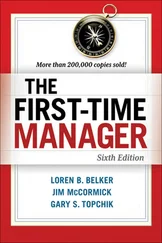Джон Болл - The First Team
Здесь есть возможность читать онлайн «Джон Болл - The First Team» весь текст электронной книги совершенно бесплатно (целиком полную версию без сокращений). В некоторых случаях можно слушать аудио, скачать через торрент в формате fb2 и присутствует краткое содержание. Год выпуска: 2013, Жанр: Триллер, на английском языке. Описание произведения, (предисловие) а так же отзывы посетителей доступны на портале библиотеки ЛибКат.
- Название:The First Team
- Автор:
- Жанр:
- Год:2013
- ISBN:нет данных
- Рейтинг книги:5 / 5. Голосов: 1
-
Избранное:Добавить в избранное
- Отзывы:
-
Ваша оценка:
- 100
- 1
- 2
- 3
- 4
- 5
The First Team: краткое содержание, описание и аннотация
Предлагаем к чтению аннотацию, описание, краткое содержание или предисловие (зависит от того, что написал сам автор книги «The First Team»). Если вы не нашли необходимую информацию о книге — напишите в комментариях, мы постараемся отыскать её.
Student protesters are being slaughtered in the Midwest.
The Jewish pogroms have begun.
You are now living in Soviet — occupied America!
One nuclear submarine and a handful of determined patriots against the combined might of Russia and Soviet-occupied America… The Most Explosive and Gripping “What If” Novel of Our Time!
First published January 1971
The First Team — читать онлайн бесплатно полную книгу (весь текст) целиком
Ниже представлен текст книги, разбитый по страницам. Система сохранения места последней прочитанной страницы, позволяет с удобством читать онлайн бесплатно книгу «The First Team», без необходимости каждый раз заново искать на чём Вы остановились. Поставьте закладку, и сможете в любой момент перейти на страницу, на которой закончили чтение.
Интервал:
Закладка:
The admiral drummed his fingertips against the tabletop. That was a sign they all knew and they waited for him to speak. “If Hewlitt strictly followed his orders,” he said finally, “and talked to Zalinsky on the basis that it was privileged information for him alone, and assuming that Zalinsky isn’t stupid — which I’ll buy — everything will be at a standstill while he’s recuperating, if it’s rapid.”
He stopped when another message was passed to him. He read it and then looked up. “All bets are off. Zalinsky’s having his gallbladder out; that’s definite. Things won’t hold still while he gets over that.”
“That means Rostovitch,” Wagner said.
“Has Hewlitt encountered him yet?”
“We don’t know, sir, not yet.”
“All right,” the admiral declared. “I want the closest possible watch over the White House and our people there. Get Mark in there on the double, I don’t care what else he’s doing. Set up the machinery immediately to pull out as many of our people as we have to to protect their safety; God knows they’ve earned that. Ted, keep Counterweight on the ready, but don’t trigger it until Ed gives the word; that’s in his department.”
“Yes, sir,” Pappas replied.
“Carl,” Haymarket continued, “do we have enough people in Washington to set up a diversion on a considerable scale if we have to?”
“How considerable?”
“A White House demonstration large enough to commit most or all of the security people that Barlov has. I realize the danger, but it may have to be done anyway.”
“If you want it, you’ll get it,” General Gifford said. “In answer to your question, yes we can do it. It’ll take a few hours to set things up; after that we’ll be able to go anytime on short notice.”
“Good, do that. Issue strict orders that the demonstration is to be * angry but peaceful. No one is to throw any rocks or start anything that would give them an excuse to shoot.”
“Right.”
“One more thing, try to scale it so that Barlov will apparently have his hands full, but not to the point where Rostovitch will think it necessary to commit any of his own people. We don’t want that.”
Higbee raised his hand. “I want in on this,” he said. “They’ll need a cause, something which will apparently trigger them, then all of the slogans — things like that. It’s got to look just right; the spontaneous overflow of emotion by people who are badly frustrated, but who can’t really do anything about it.”
“You guys set it up,” the admiral declared. “Anything else?” Higbee continued. “Barney, I think we need to note that our timing, which was entirely designed to keep Zalinsky off balance, has gone up the flue. Now we’ve got a whole new ball game.”
The admiral nodded sharply. “True. My thinking right now is that we shouldn’t pull Counterweight until we’ve gotten our exposed people out first. They know Mark, don’t they?”
“As Percival, yes.”
“Then go batten down the hatches and as soon as that’s done we’ll hit Rostovitch where it will hurt. Keep me up to date on this by the minute.”
“The people we take, shall we hide them out?”
The admiral weighed that for three seconds. “No, bring them in here. If Hewlitt is the interpreter he is reputed to be, there may be work for him to do.”
Pappas was already on his feet. “Under way, sir. I just hope now that we’re in time.”
It was all that Hewlitt could do to hold himself together as he walked out of the Oval Office; he could almost feel Rostovitch’s eyes burning the middle of his back. His mind and his body urged him to flee, to escape while there was still life in him, but to do that at once would be an overt confession — and death. He sat down at his desk and fought to think, to clear his mind. He had gone one short round with Rostovitch and had won a temporary reprieve which could expire at any moment; he would stay alive only while Rostovitch checked on whether he had deceived him or not. When the answer came in, there was no doubt whatever what would happen then.
The answer — get out and get out fast.
He hardly heard the phone when it rang; he picked it up by reflex action as much as anything else. Then he heard Barbara’s voice. “Hew, I don’t feel well at all. I’ve got to go home.”
She knew!
“Can I help you?” he asked.
“Would you?”
“Right now. Can you come here or shall I…”
“Wait.” That was all.
Then in a flash he saw it — Rostovitch had ordered him to deliver a message. He seized the phone and called Major Barlov. “Colonel Rostovitch has given me an errand to do,” he reported.
“Then attend to it at once.”
“I intend to, major; I wanted to inform you that I will be gone until it’s carried out.”
“Waste no more time.”
God was with him, it couldn’t be anything else. But he could not abandon Barbara. He got into his topcoat in seconds, picked up his briefcase, and looked for her with desperate anxiety. The seconds tortured him until she appeared, actually looking thoroughly ill. He took her arm and led her out, every precious moment the answer to an unspoken prayer.
The cool fresh air of the portico reminded him how sweet it was to live, every step now had in it part of the ingredients of life. The gate was visible ahead of them, if only the phone…
They were passed through with a casual wave of the sentry’s arm; it had never been so simple. By the will of merciful fate there was a cruising cab just pulling in; there were fewer and fewer available each day. Hewlitt had thought first of going to his apartment, but he knew at once that it would be wrong; he gave the address of the safe house — there might be help there. Then he realized that he had to go there anyway since he had Barbara with him.
During the ride she sat close to him, holding his hands and saying nothing. She still kept up the pretense of being ill, so much so that he began to wonder if any part of it was real. If that was the case…
He was losing his grip, and that he could not allow! He took a new hold on himself and once more tried to focus his mind onto a decision as to what he should do next. He had found no definite answer by the time that they reached the house. He helped Barbara out, paid hurriedly, and then guided her carefully inside.
Davy Jones was sitting at the bar talking to someone. There were two glasses and a bottle. A bottle. He remembered and read the warning. “Barbara is sick, Davy,” he said, “can you give me a hand?”
“Of course, Mr. Hewlitt, right now.” As he got up he spoke to his guest. “Sorry.”
“I was just going,” the man said.
With a proper combination of solicitude and respect Davy followed behind Hewlitt as he led Barbara upstairs; he maintained that pose until the front door was shut behind him and he saw that the guest had gone. Then Barbara turned. “I had to get you out,” she said. “You’re blown.”
“Into Barbara’s room — now,” Davy said. “I’ve got orders for you.”
They obeyed him; the moment she was inside Barbara pulled out [342] a suitcase and began to throw things inside with a speed that Hewlitt had to admire; she didn’t waste a motion. He knew better than to offer to help her; she was doing it better alone.
“Percival’s coming,” Davy said. “He’ll be here any moment. Hew — you, Barbara, and Mary are being pulled out right now. We’ve already got the essential stuff from your apartment for you — forget the rest.”
Hewlitt was still trying to think. “I bluffed Rostovitch,” he said, “but it won’t last for long. It may be gone already.” He turned quickly to Barbara. “You are all right, aren’t you?” he asked.
Читать дальшеИнтервал:
Закладка:
Похожие книги на «The First Team»
Представляем Вашему вниманию похожие книги на «The First Team» списком для выбора. Мы отобрали схожую по названию и смыслу литературу в надежде предоставить читателям больше вариантов отыскать новые, интересные, ещё непрочитанные произведения.
Обсуждение, отзывы о книге «The First Team» и просто собственные мнения читателей. Оставьте ваши комментарии, напишите, что Вы думаете о произведении, его смысле или главных героях. Укажите что конкретно понравилось, а что нет, и почему Вы так считаете.












